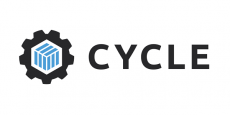|
By Alexander Mattoni
For many, Cloudflare provides an essential suite of network security tools that their organization integrates with deeply. One such tool is "Cloudflare Tunnel" - a secure way to connect resources to Cloudflare without a publicly routable IP address. When deploying sensitive applications to Cycle, Cloudflare Tunnel can be leveraged to ensure all traffic is routed through Cloudflare before reaching your environment's load balancer. This extra layer of security provides quite a few benefits.
|
By Konner Bemis
The customer is the lifeblood of any company, and a good customer has the potential to make a huge impact on the direction and success of your business. Here at Cycle.io, we are no exception. We believe that when you come to Cycle, you are not only getting great tech but also receiving an excellent customer experience. The customers we work with every day are paramount in driving innovation and keeping us honest.
|
By Chris Aubuchon
Last year, we witnessed a significant influx of companies transitioning to Cycle from Kubernetes, ECS, and other container platforms. These interactions provided us a front row seat to the evolving culture of DevOps. This article dives into the three biggest DevOps trends that we see making a big impact in 2025.
|
By Chris Aubuchon
Recently I've had the great privilege of working on creating a distributed WordPress deployment that leverages GCP compute and services alongside containers running on the Cycle platform. This blog dives into a bit of the history of why WordPress is difficult to deploy in a distributed way, how we approached it, some really interesting things we found, and finally, the solution we put in place.
We are thrilled to announce that Cycle was named a Cool Vendor in the 2024 Gartner Cool Vendors in Container Management research. For Gartner clients, you can find the full research here. “When we started Cycle a decade ago, we knew it would be a constant battle in the war of functionality versus simplicity. While it's a challenge to build a platform that has all the features organizations want, it's even more difficult to accomplish that functionality without introducing extra complexity.
|
By Chris Aubuchon
We all know that keeping a server clock "on time" is an ongoing problem that computer scientists have wrestled with for decades. Nowadays, most servers keep time using a quartz crystal oscillator that's powered by a CMOS battery. The crystal vibrates at a very precise frequency and that's how it maintains accuracy (cool right). Events like rebooting and power loss can cause the server to abandon its primary clock source and fall back to an OS-level timekeeping system.
|
By Chris Aubuchon
We're excited to announce two major additions to our website that are set to make your experience using Cycle smoother and more effective: the completely revamped Documentation section, and the new Learn Center.
|
By Matt Krauser
August has been an outstanding month for the Cycle team, marked by significant advancements across the platform. We've introduced new features aimed at simplifying workflows and enhancing user experience. As we wrap up August and look ahead to September, we're excited to share the progress we've made and what you can expect in the coming weeks.
|
By Bryce Lewis
Today we announce the launch of the Cycle Toolbox, a suite of tools that are designed to streamline the workflows of Devops professionals and developers. Our goal is to create a toolkit that not only simplifies your daily tasks but also helps alleviate some of those common frustrations. This is just the beginning, but for our initial release, we're excited to introduce the following tools.
|
By Alexander Mattoni
It's not an understatement to say Dockerfiles are the underpinning of modern DevOps. Writing a simple Dockerfile that 'works' is relatively straightforward, but there are several tricks and tips that could significantly improve the build speed and efficiency of your container images. If your current Dockerfiles copy in multi gigabyte contexts, reinstall dependencies on every build, or use only a single stage, we need to talk.
|
By Cycle
In the 5th episode of the Cycle Spotlight we sit down with Head of Engineering at Busify, Casey Dement, who uncovers key reasons why all businesses should strongly reconsider before they jump down the K8s rabbit hole.
|
By Cycle
We caught up with Alexander Mattoni, Cycle's Head of Engineering and Co-Founder. He unveils plans for and awesome resource for all of those in the DevOps community and what to expect from the Cycle team in the coming weeks.
|
By Cycle
In the 4th episode of Cycle Spotlight Konner sits down with Stephen Morgan, DevOps veteran, and chats about his journey and the technology that helped him become the architect he is today.
|
By Cycle
In this weeks spotlight I sit down with Cycle Founder, Jake Warner to talk about trends in hiring and layoffs prevalent in the tech industry.
|
By Cycle
Docker build times got you down? Our Co-Founder and Head of Engineering sits down with Kyle Galbraith, Co-Founder of Depot, to talk about key tips and tricks to maximizing your Docker files.
|
By Cycle
Joining me is Chris Aubuchon, Cycle's Head of Customer Success. He'll outline what the community is all about, how it fits into our platform, and what you can do to get involved. Don't miss it!.
|
By Cycle
Introducing Cycle Spotlight: Your New Go-To for DevOps and Software Engineering Insights! We are thrilled to announce the launch of Cycle Spotlight, a new short series dedicated to delivering quick, insightful conversations with engineering leaders and industry experts. This series will be hosted by Konner Bemis! For our first episode, we'll be featuring Jake Warner, our CEO and Founder as he shares the reasoning behind the start of Cycle.
|
By Cycle
Cycle's approach to VPN service makes creating, authentication, and management of environment level VPNs a breeze. Join Chris Aubuchon as he dives into Cycle VPNs, how to configure them, and how they stack up against other services like Kubernetes, ECS, Cloud Run, App Service, and more.
|
By Cycle
Whether you're building the next massive AI platform, encoding thousands of images, or a hundreds of other use cases, the ability to quickly create ephemeral tasks can be a game changer for engineers solving complex tasks. With Cycle, you're now able to run Functions across multiple cloud providers all from one platform. And even better, these functions will exist on the same encrypted networks as your other containers.
|
By Cycle
At Cycle.io, we see many unique situations involving data requirements, retention, and security. As a multi/hybrid cloud and LowOps platform, we've had to come up with some pretty interesting solutions for backups and data protection. Dive in with Cycle's co-founder and head of engineering, Alexander Mattoni, as he is easily able to deploy a postgres instance, with automated backups to offsite storage in the span of minutes.
- February 2025 (1)
- January 2025 (2)
- December 2024 (2)
- November 2024 (1)
- October 2024 (1)
- September 2024 (4)
- August 2024 (4)
- July 2024 (8)
- June 2024 (3)
- May 2024 (1)
- April 2024 (7)
- March 2024 (7)
- February 2024 (2)
- January 2024 (5)
- December 2023 (10)
- November 2023 (6)
- October 2023 (2)
- September 2023 (6)
- August 2023 (2)
- July 2023 (1)
- May 2023 (1)
- April 2023 (1)
- March 2023 (2)
- February 2023 (1)
- January 2023 (1)
- December 2022 (2)
- November 2022 (2)
- August 2022 (3)
- July 2022 (2)
- June 2022 (2)
- May 2022 (2)
- April 2022 (2)
- March 2022 (1)
- February 2022 (1)
- January 2022 (2)
- December 2021 (1)
- November 2021 (1)
- October 2021 (1)
- September 2021 (1)
- August 2021 (1)
- July 2021 (1)
- June 2021 (2)
- May 2021 (2)
- March 2021 (1)
- December 2020 (2)
- September 2020 (3)
- March 2020 (1)
- February 2020 (1)
- January 2020 (1)
- November 2019 (1)
- October 2019 (2)
- September 2019 (2)
- August 2019 (3)
- July 2019 (1)
- June 2019 (1)
- May 2019 (2)
- April 2019 (1)
The developer friendly container platform. Choose your infrastructure provider, import your containers, and let Cycle handle the rest.
Containers have changed the way developers build, deploy, and scale software. Unfortunately, the adoption of containers has also lead to an ever-growing stack of technical debt and responsibilities for teams to manage.
Interested in utilizing containers, on your own infrastructure, without having to deal with the OS, networks, or a container orchestration layer? Welcome to Cycle.
Container Orchestration Meets SaaS:
- Always Up-to-Date: Stop dealing with OS patches and orchestration layer updates; Cycle automatically delivers platform updates to all servers.
- Automate Everything: Deployment pipelines, automatic TLS / SSL certificates, and more. Cycle is there when you need it -- and out of the way when you don’t.
- Bring Your Own Infrastructure: Effortlessly deploy infrastructure from any of our supported providers. Own your data and your applications while we handle the rest.
- Develop Faster: Cycle was built for both experienced developers and new users alike. Manage containers, servers, DNS, and more, all on one platform to save time and resources.
- Built for Teams: From quickly onboarding new members to easily managing user access, Cycle’s portal has everything needed for a team to grow.
- Secure by Default: All services and configurations are secure from the start, reducing the likelihood of mistakes that could lead to a security exploit.
The Developer-Friendly Container Platform.












